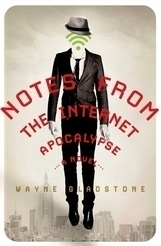5 Songs People Think Are Deep (Until They Think About Them)

The other week I wrote about five famous classic rock songs that fans have built up as being a lot more lyrically significant than they actually are. And I provided proof that even the people writing those songs didn't agree with the fan interpretations. Well, the response was great, because if it's one thing Led Zeppelin fans love, it's being told that there's something less than perfect about "Stairway to Heaven."

In any event, as I researched that column I saw that there was no shortage of songs that meet this category. Just too many good ones not to write about, especially when there's an added incentive of pissing people off. So here are five more songs that aren't nearly as deep and important as fans tend to think.
"Champagne Supernova"
"Champagne Supernova" seems like a good place to start. It's hard to believe now, but at the time some of Cracked's spermy readers were burrowing their way into their mom's ovum, Oasis was one of the biggest bands in the world. Hear me out. This was before they were a one-hit wonder who would inexplicably have more than one hit. Anyway, one of their biggest was the lyrically enigmatic "Champagne Supernova."
People See Big Things
For those of you listening to the lyrics, you probably noticed that they sound pretty cool but defy any coherent or obvious meaning. And, by the way, that's not a problem. I'm not saying songs have to have any deep significance to be good. And sure it's fine for ambiguous words to have different meanings to different people. The point is, the superfans don't just offer possible or plausible interpretations, they take to their blogs insisting they have the answer, like this Oasis fan who is positive it's an autobiographical song about the Gallagher brothers' absentee dad, particularly the enigmatic lyric about "slowly walking down the hall / faster than a cannonball."
But the Song Is About So Much Less
Shocking as it may be that a blogger is wrong, the lyrics to "Champagne Supernova" are not intended to tell any coherent story except, perhaps, indirectly, the story of how Noel Gallagher likes getting high and doesn't sweat lyrics too much. In 2006, Noel said he hadn't made up his mind what the song is actually about, adding on the band's website that some of the lyrics were written when he was "really out of it." As far as the "faster than a cannonball" lyric, while Noel defends an ambiguous lyric's right to exist (and I agree with him), he doesn't fucking know what it means. Although, maybe he changed his mind because he also once claimed it was about a slow-walking character from a British TV show, but he "couldn't think of anything that rhymed with 'hall' apart from 'cannonball.'"
"Yellow"
"Yellow" was Coldplay's first hit in the United States, and like every Coldplay song ever written it's ... fine, I guess. Unlike some of the songs on this list, "Yellow" does have a distinct lyrical meaning -- it's just basically a nice, simple love song.
People See Big Things
But the reason "Yellow" is on this list is, when I started writing the last article a bunch of people came up to me saying they always thought this song was about death. See, yellow is often associated with decay, jaundice, and magical submarines, but that last part's not so important right now.

And, apparently, it's not just strangers who allegedly come up to me on the street to talk about my Cracked articles but real people who believed that whole dying lover storyline for this simple song by some very white dudes. That death and decay theme runs through this thread of fan interpretations.
But the Song Is About So Much Less
Lead singer Chris Martin rejects this interpretation. Martin claims "Yellow" is a simple love song. And that part about the color yellow? Well, Martin said, "It was simply because that word sounded nice; it just seemed to fit -- no other reason. None of the other colors would have sounded right, really."
"The End"
People like to pretend The Doors were an incredibly heavy band, mostly because no singer better embodied the image of the singer as poet than Jim Morrison. He had the look, the affectation, and the leather pants. "The End" contains some of Morrison's most enigmatic and obscure lyrics, with references seemingly to the Greek tale of Oedipus. Also adding significance was the prominent use of the song over Francis Ford Coppola's Apocalypse Now.
People See Big Things
Yes, this song seems to be about death, which is a pretty heavy category, and the somber music adds to that interpretation as surely as singing "Mother, I want to fuck you" definitely sounds like an Oedipus reference. But what exactly did mystic shaman Morrison mean with all this? Well, while you can find many people's rambling interpretations, I greatly encourage you to click on this gentleman's emphatic explanation that it's about moving out West to have more sexually liberated relationships.
But the Song Is About So Much Less
As poetic as some might believe Jim to be, it's also important to remember that he did an awful lot of drugs. And wouldn't you know it, he was tripping on acid during the recording of "The End." So sure, there's a long, ambiguous narrative about death and fucking and killers walking down halls, and you can put it together any way you want to. In fact, go ahead and put it together any way you want to, but just do that for your fun. Don't be so sure about it, because Morrison, the acid-chomping, free-verse singing lyricist was always vague about the song's meaning, claiming, "It could be almost anything you want it to be."
"Yellow Ledbetter"
This song's a little different than the others on the list because, according to the person who wrote it, it's about something, and that something is fairly significant. Nevertheless, it's included here because there is absolutely no basis for any listener to receive that message from these lyrics. Accepting this song's allegedly "right" interpretation almost rises to the level of being willingly punk'd. Confused? Let me explain. The song in question is Pearl Jam's "Yellow Ledbetter," and it's been surrounded by multiple interpretations mostly because Eddie Vedder sings it like he's gagging on a rhyming dictionary that contains only vowels.
Yes, the first question is: What the hell is Eddie even saying? Personally, I enjoy this video of misheard guesses regarding that topic.
People See Big Things
It's difficult to interpret a song whose words you can't hear, and if you go to various websites you can find different stabs at what Eddie is saying, but don't. And if you go to various message boards you will see guesses at what the title means. Some say it's from an old tongue-twister in which you try to say "yellow better red better" as fast as you can. The theory goes, you get "yellow ledbetter" and that Eddie's referencing how the lyrics are undecipherable. Others say Eddie's talking about Huddie Ledbetter (aka Leadbelly), a founding blues musician. Interpretations as to the rest of the song vary without any consistent interpretation. Except those people piping up with what Eddie said it was based on.

that thing happened when Eddie was 15. Y'know, that thing ..."
But the Song Is About So Much Less
Well, actually, as I mentioned above, the truth is not about so much less. There really is a real-life story buried in there, but for reasons not clear to anyone, Eddie mumbles the lyrics more than on any other Pearl Jam song. Also, Eddie is always changing the lyrics of the song in performance and is fully aware of this, because once, when questioned as to the lyrical meaning, he reportedly responded, "Wait ... you mean there's lyrics?" So even though the song is based on a real thing, it is Eddie himself who makes the song about so much less.
For the record, according to Vedder, the title of the song has nothing to do with the tongue-twister or bluesman Leadbelly; it is about his real friend Tim Ledbetter. Also, the song is about a friend (that may or may not be Tim Ledbetter) who found out his brother had died serving in the Gulf War. While walking with Vedder, the friend saluted a flag on some people's porch, but they didn't wave back because the friend looked like a long-hair.
"Losing My Religion"
Sometimes it's not superfans' fault for looking too deeply into a song. Sometimes external factors make more of something than it is. R.E.M. built a catalog of music around Michael Stipe's typically dense and obscure imagery. Who can forget such classic lines as "I can swing my megaphone and long arm the rest / it's easier and better to dispute it from the chest," or the crystal clear, "Feed me banks of light / and hang your hairshirt on the lowest rung / it's a beautiful life." And, y'know what? I like Stipe's verbal shenanigans, because when he tries to write clearly, you get the worst song ever penned, the super sweet and simplistic "Everybody Hurts," which sounds like Mr. Rogers singing to a gothy puppet in the hope it doesn't cut itself and bleed out felt in the magic trolley's bathroom car.

But this brings us to "Losing My Religion," a song with (for Stipe) somewhat straightforward lyrics, but a highly influential video that looks like this:
People See Big Things
Well, of course they do! Did you see that shit? First of all, the word "religion" is in the title, and as we've seen with this article and the last, nothing sets people off more than religious stuff. (Looking at you, "Stairway to HEAVEN"). But more than that, look at all the religious imagery. Stipe's got angel wings for Christ's sake, and then he falls away from them, like, I don't know, he's losing his religion or falling from Heaven, perhaps. And then there's a whole bunch of vaguely homoerotic stuff -- from Bill Berry's overly firm embrace of Stipe's shoulders ...

... to a form of male penetration ...

... to jizztastic milk explosions:

It's not surprising that people could see this as a song about falling away from the church and embracing homosexuality. Or some people apparently believe it contains references to John Lennon's murder for very little reason. And, of course, in the place of Stipe's words, listeners took all sorts of interpretations from the very, very stilted video.
But the Song Is About So Much Less
Unlike many of his songs, Stipe has been very clear that this song is about unrequited love and obsession. That makes sense with lyrics that convey feeling stuck in a corner and thinking you hear someone laughing at you or crying. As far as the title? "Losing my religion" is a local expression that means you're at your wit's end, which you can certainly be if you feel obsessed with someone who doesn't love you back.
Everything else really comes from director Tarsem Singh's video: references to Gabriel Garcia Marquez's short story "A Very Old Man With Enormous Wings." Then there's a character modeled after Saint Sebastian. The video is also influenced by the religious works of Italian Baroque painter Caravaggio. So, y'know, people can be forgiven for making more out of the song than they should. The director certainly wants them to.

GLADSTONE'S NOTES FROM THE INTERNET APOCALYPSE IS ON SALE NOW!
After experiencing the joy of purchasing Book 1 of the trilogy, be sure to follow Gladstone on Twitter.
Also, you can get all your Internet Apocalypse news here.
And watch this HATE BY NUMBERS trailer to find out how to fund the 100th episode of HBN!
For more from Gladstone on Cracked, check out The 5 Least Meaningful Songs People Mistake for Being Deep and 5 Players Who Changed The Game (After Being Rejected By It).
Are you on reddit? Check it: We are too! Click on over to our best of Cracked subreddit.
